Baron23
Well-Known Member
The 10 Significant Marijuana Studies of 2017
While the marijuana industry witnessed its share of industrial growth mixed with political chaos over the past 12 months, it also produced some noteworthy research on the plant’s mysterious compounds. As the global community collectively prepares to say goodbye to 2017 late Sunday evening, and welcome the New Year early Monday morning, we’ve scoured the numerous studies reported on during 2017 and have provided the following 10 marijuana studies for your reading pleasure.
A stellar year for cannabis-related research, the below list is a compilation of Marijuana.com’s top 10 studies published in 2017.
Studies Show States With Medical Marijuana See Dramatic Decline in Opioid-Related Deaths
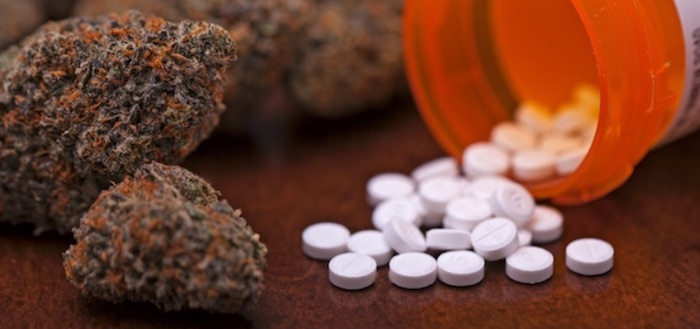
America has a serious problem with prescription pain medication (read: OxyContin and Vicodin), and it kills approximately 46 people every day from overdose. But according to a study published in the Journal of the American Medical Association, those states with legalized medical marijuana dispensaries have witnessed a dramatic reduction in their opiate-related death rates. The research found that by providing broader access to medical marijuana, states could potentially reduce the abuse of highly addictive painkillers, thereby dramatically reducing their opioid-related death rates.
Study: National Medical Marijuana Could Save Thousands of Lives Annually

A 2017 study published by the University of Indiana indicates that medicinal cannabis, if legalized nationally, could save 47,500 American lives annually. The study noted, “cannabis use appears to prevent approximately 17,400 to 38,500 premature deaths annually.”
Senior Citizens Embrace Medicinal Cannabis: Use up 250%

Far from a gateway drug, marijuana helps today’s senior citizens exit the vicious cycle of pharmaceuticals and addiction. Although marijuana was once considered a dangerous recreational drug by many senior citizens, today’s elderly are among the fastest growing demographic within the cannabis industry. A recent analysis by the National Survey on Drug Use and Health found “The prevalence of past-year cannabis use among adults aged ≥ 50 increased significantly from 2006/07 to 2012/13, with a 57.8% relative increase for adults aged 50–64 (linear trend P < 0.001) and a 250% relative increase for those aged ≥ 65.”
New Study: Δ9-THCA Has Potent Neuroprotective Properties
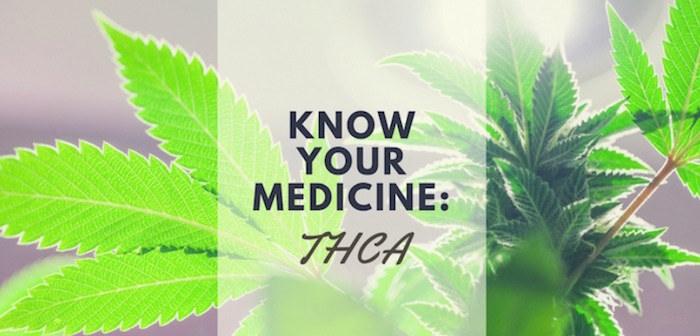
THCA (Δ9-tetrahydrocannabinol), the most abundant non-psychoactive cannabinoid found in marijuana, has demonstrated its potent neuroprotective ability in a 2017 study. Published in November in the British Journal of Pharmacology, the Spanish study conducted at Instituto Maimónides de Investigación Biomédica de Córdoba, found Δ9-THCA is a worthy treatment option for those suffering from debilitating neurodegenerative diseases.
Study Finds Marijuana Consumption Can Minimize Risk of Stroke
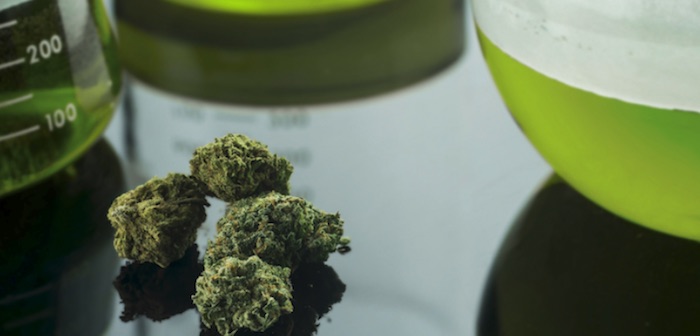
According to a study published in February in the Journal of Neuropsychopharmacology, habitual marijuana use can dramatically reduce an individual’s chance of suffering a stroke. Dr. Francis Filbey, the head researcher of the study and director of Cognitive Neuroscience Research in Addictive Disorders at the Center for BrainHealth, discovered “the cerebral blood flow (CBF) in the putamen — a round structure located at the base of the forebrain,” — was significantly higher in marijuana users than non-users.
Study Says Cannabis Helps HIV Patients Maintain Cognitive Function
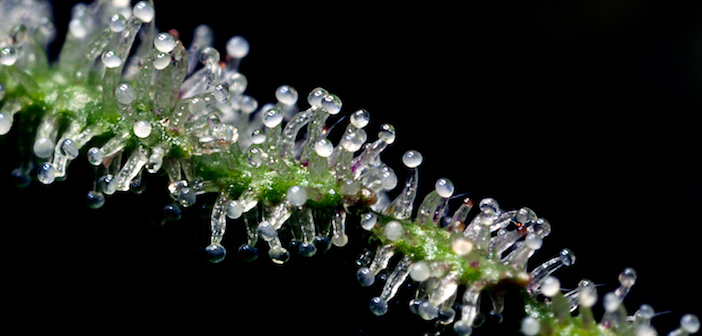
In a potentially groundbreaking discovery, a Michigan State University (MSU) study published in November says medical marijuana may be able to decelerate the mental decline that affects as many as 50 percent of patients with HIV. “It’s believed that cognitive function decreases in many of those with HIV partly due to chronic inflammation that occurs in the brain,” explained Norbert Kaminski, lead author of the MSU study, which can be found in the journal AIDS. “This happens because the immune system is constantly being stimulated to fight off disease.”
THC and Migraines: Study Indicates Tetrahydrocannabinol Can Help

A recent study published in the European Journal of Pharmacology examined the use of cannabinoids as a treatment for migraines in female rats and found THC has the power to reduce migraine-like pain. Migraine headaches adversely affect more than 4 million Americans daily. Considered the sixth most disabling illness in the world, migraines that can last for 72 hours plague 12 percent of the U.S. population, according to the Migraine Research Foundation. Per the study, the THC cannabinoid’s anti-migraine effect is mediated by the brain’s CB1 receptor.
Review of CBD Studies Indicates Cannabinoid’s Antipsychotic Effects
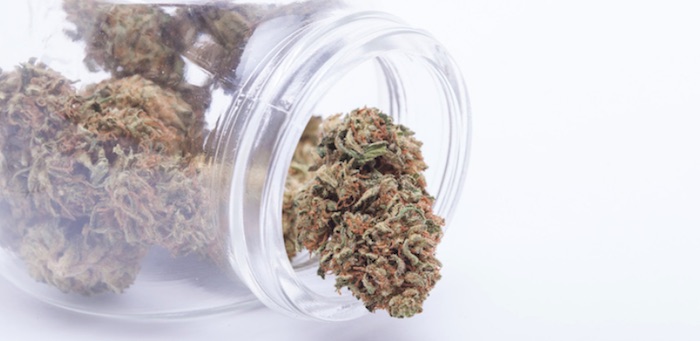
Performed in the Netherlands, a review of existing research on Cannabidiol – aka, the CBD cannabinoid found in marijuana – has underscored the compound’s efficacy as an antipsychotic medication. In another victory for Cannabidiol, the recent review of existing research has determined the CBD cannabinoid found in cannabis is more effective at reducing psychotic episodes than currently prescribed pharmaceuticals.
Study: Cannabinoid Spray Helps Calm Spasticity in Spinal Cord Injuries

Research published in October indicates Sativex – a cannabis-derived pharmaceutical – can mitigate spasticity associated with prolonged spinal cord injury. Conducted by a group of Spanish doctors from the Hospital Universitario y Politécnico, La Fe, Valencia, Spain, a six-month study revealed that Sativex (a cannabinoid-based spray) may provide relief where Western medicine has failed.
Cannabinoids Found to Increase Anticancer Effect of Chemotherapy
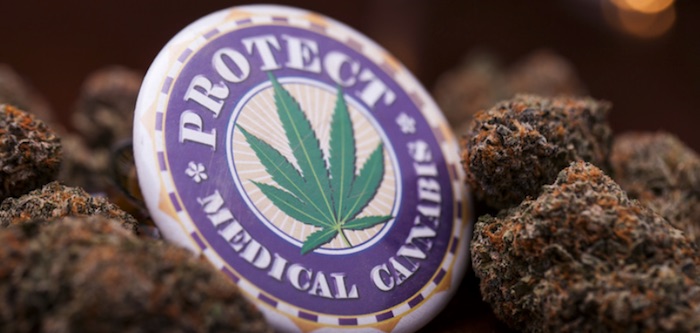
Researchers from St. George’s University of London confirmed in May that chemotherapy is most effective when used in conjunction with cannabinoids for the treatment of leukemia. Per the study’s results, the reduced dosage of chemotherapy could potentially translate to fewer side effects. “Our results suggest that when certain cannabinoids are paired together, the resulting product can be combined synergistically with common anti-leukemia drugs allowing the dose of the cytotoxic agents to be dramatically reduced yet still remain efficacious.”
Note: Cannabis is considered a “drug” with a “high potential for abuse” and “no currently accepted medical treatment use” by the Drug Enforcement Administration (DEA) — the federal agency has continuously refused to reclassify the medicinal herb within the Controlled Substance Act (CSA). As such, cannabis remains a Schedule I Narcotic within the CSA, and a substance for which scientists must gain DEA approval before they can study its effects on human subjects. Detrimental to legitimate peer-reviewed cannabis research, those hoping to conduct clinical research using marijuana must first implement costly upgrades to their lab’s security protocols and secure the often low-quality plant material from a DEA registered source.